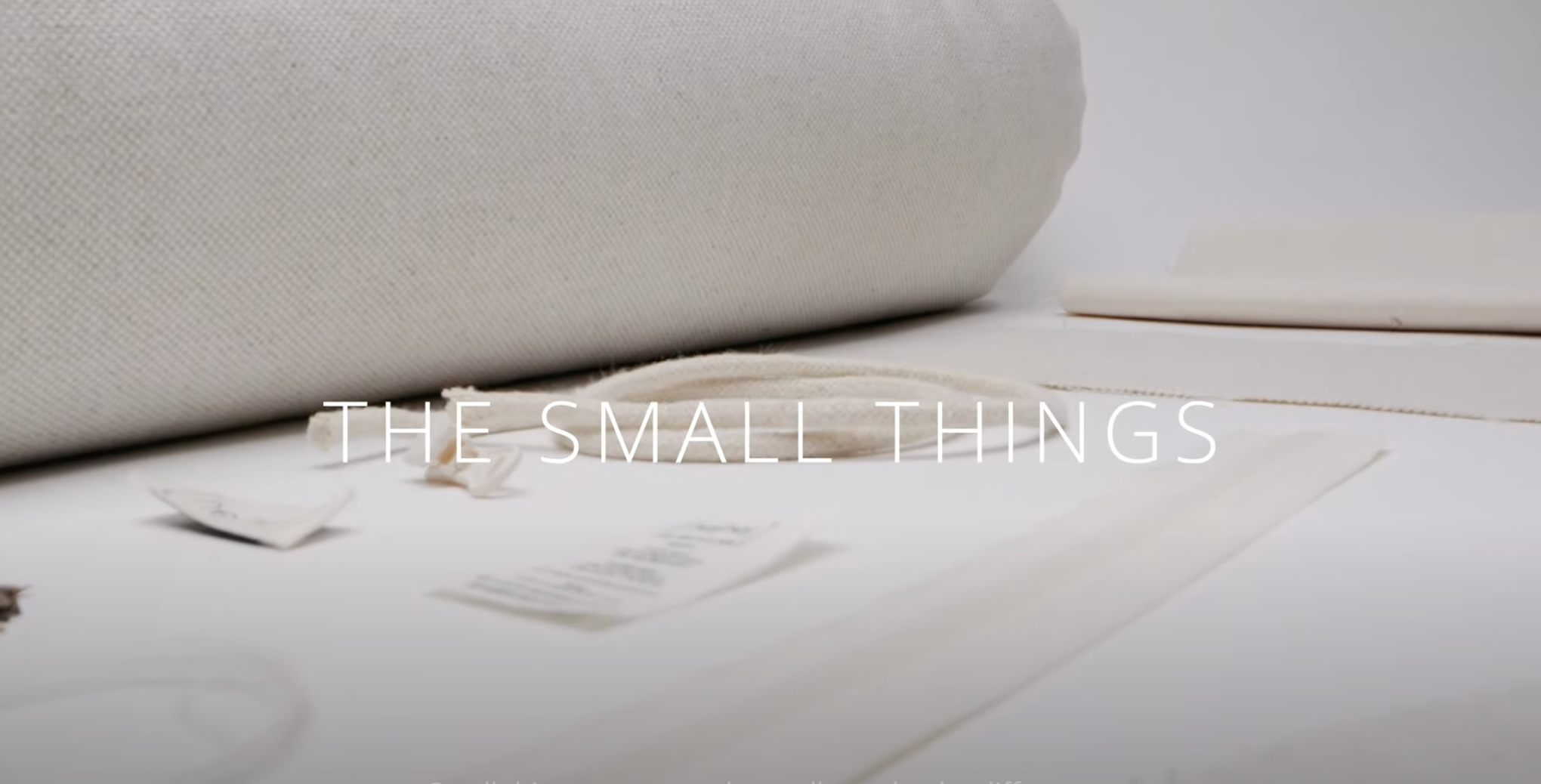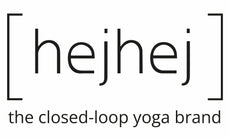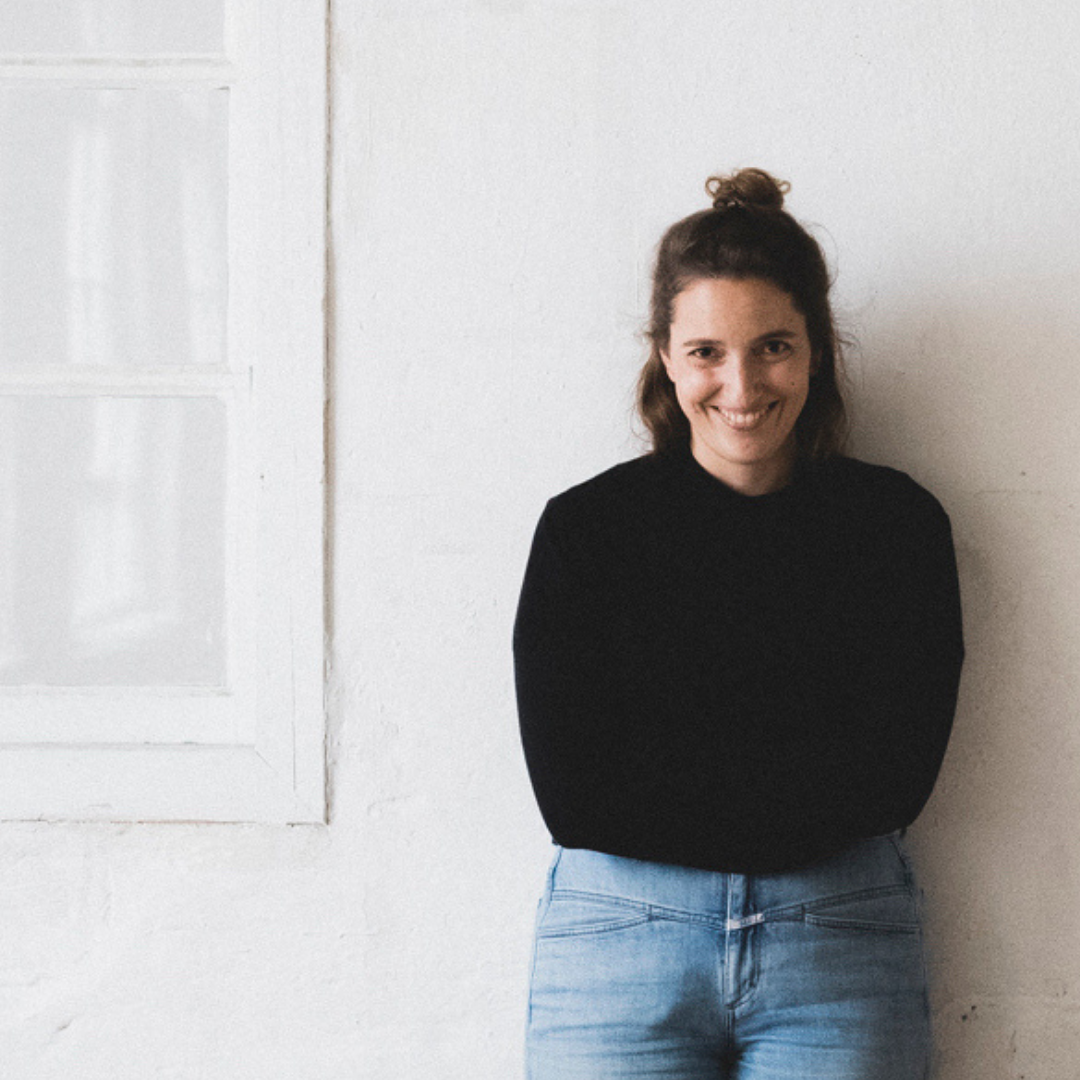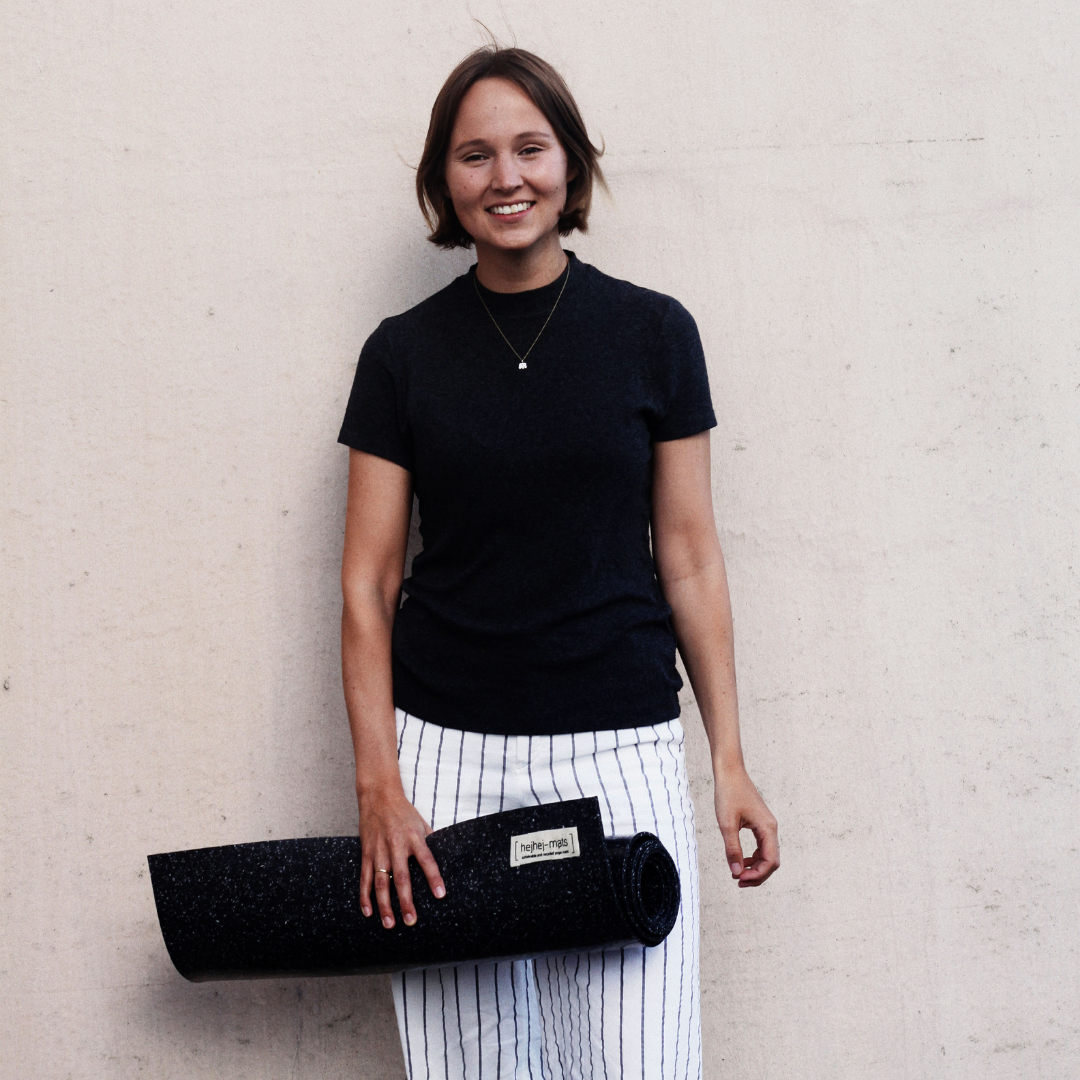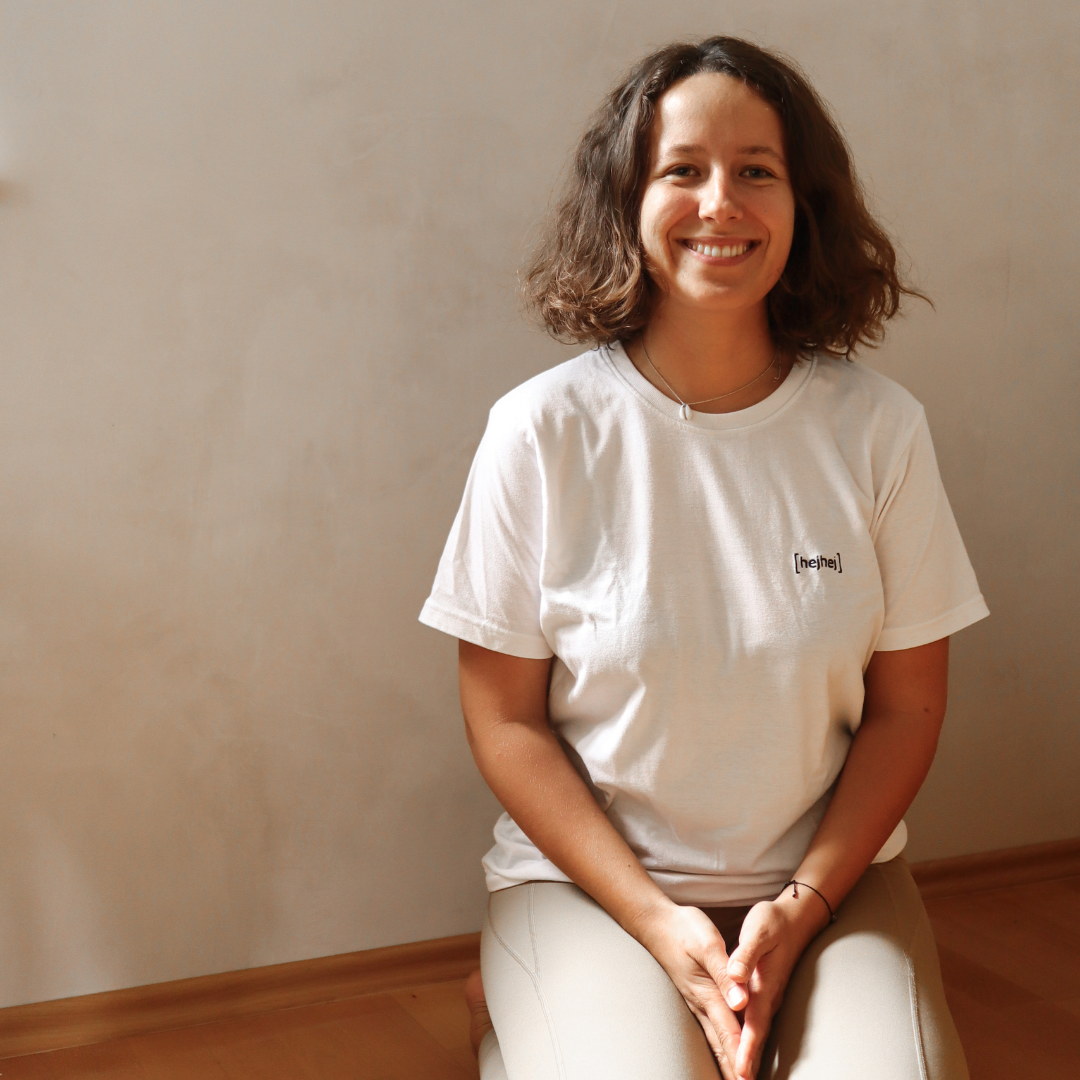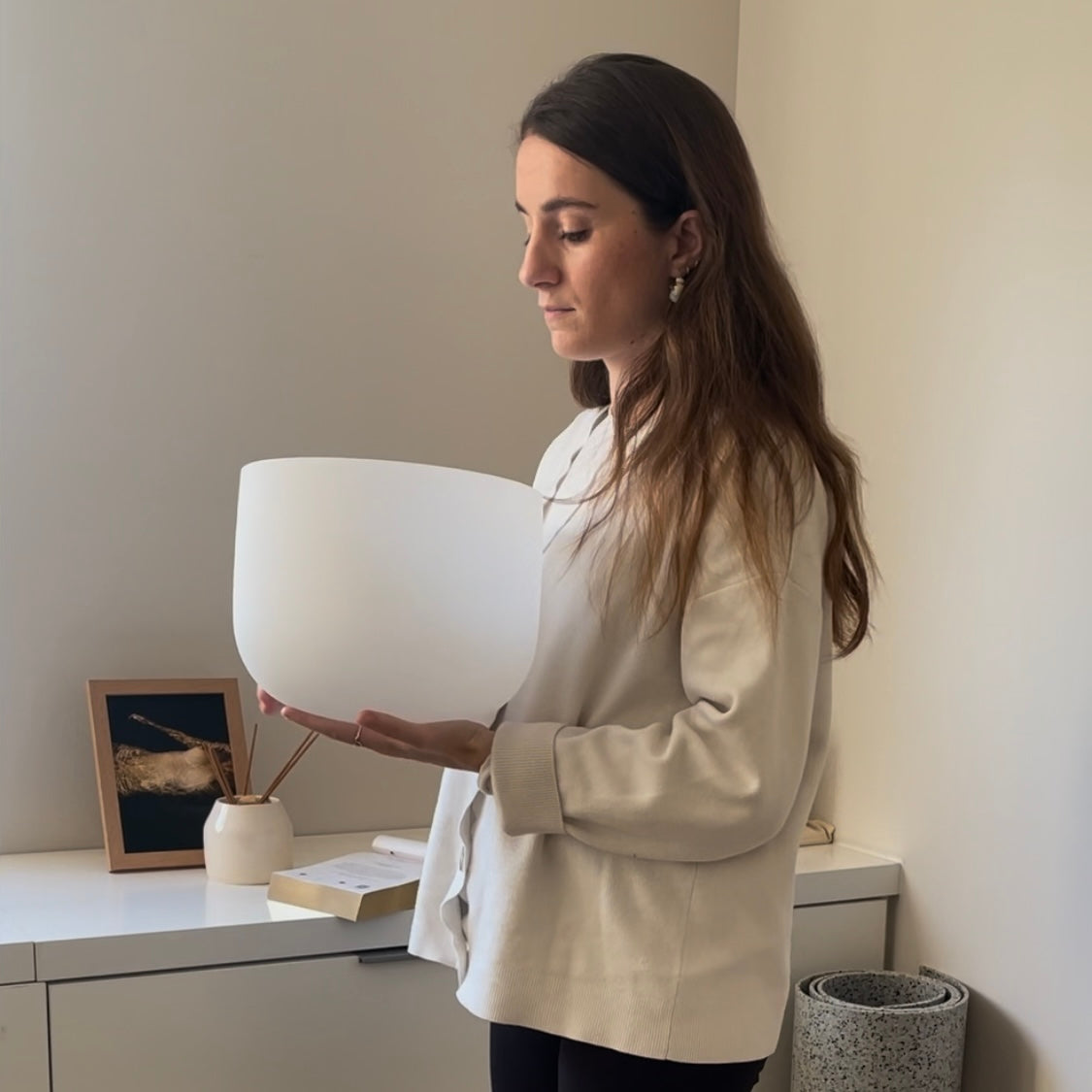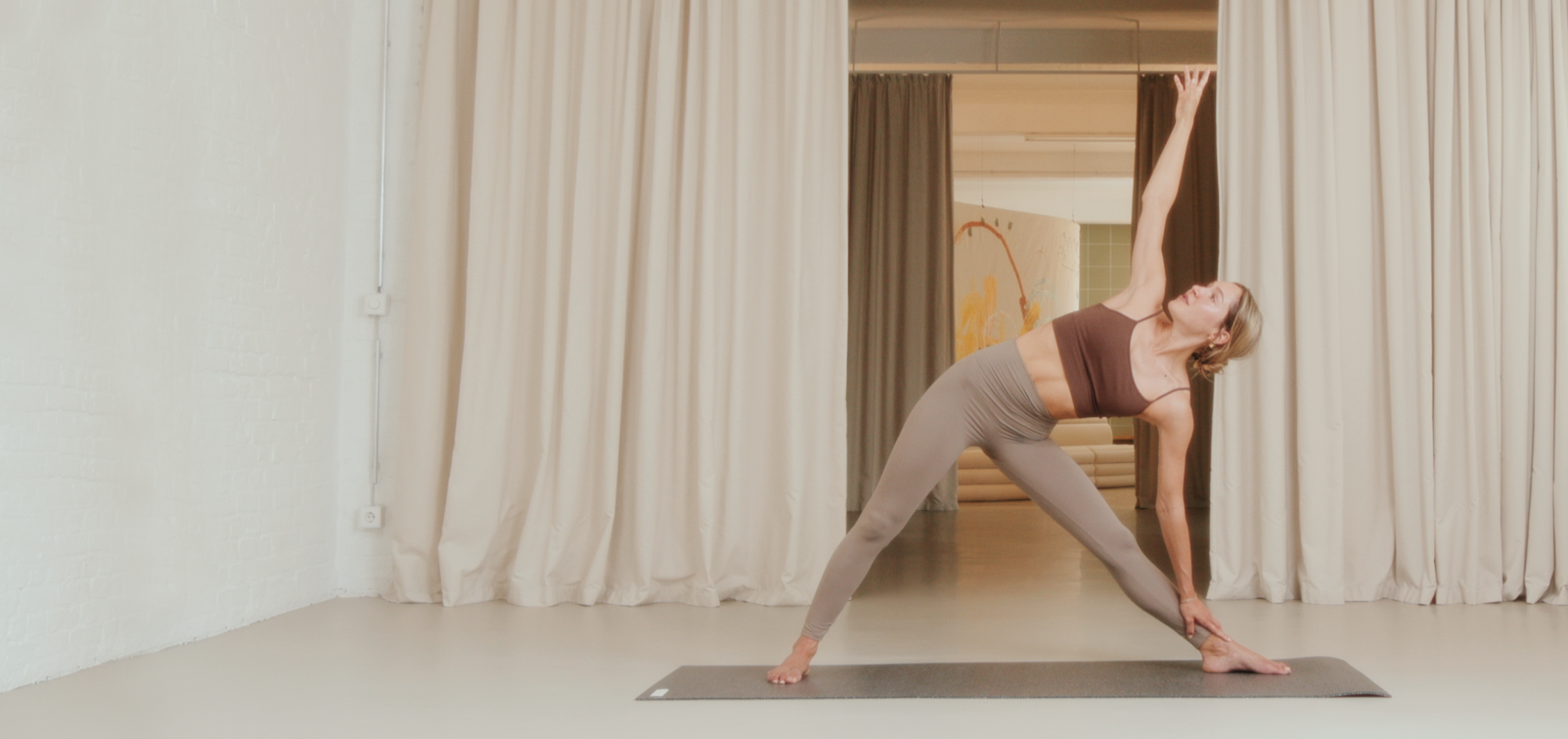Sustainability at hejhej – a circular start-up
You can find detailed information about the sustainability of the individual hejhej products on the respective product page. In the following, we will very generally share what it is like for our company to be a start-up in the Circular Economy. For us, a sustainable company takes sustainability into account in every decision and at all levels, right down to the last detail. Transparency is very important to us.
Since the beginning of our start-up, we have been operating according to the principles of the Circular Economy. We make decisions according to sustainability criteria. Therefore, hejhej products are closed-loop, we contribute to a sustainable economy and are the first yoga brand to produce yoga equipment in the spirit of the circular economy. All hejhej products can be fed back into the ecological or technical cycle – so no waste is created by our products. The sustainable circular economy is a key contribution to climate protection: Recycled plastic saves our atmosphere CO2.
We select our materials very carefully. Our aim is to build and maintain a long-term and enjoyable partnership with our suppliers. In addition to the product pages, you will find a page here where we have listed all the materials for you.
High quality is very important to us so that you can use your hejhej-product for as long as possible. With intensive market research, we developed the yoga mats together with yoga teachers and the innovative and novel live market research laboratory Josephs (then part of the Frauenhofer Institute). Continuous product development and improvement are very important to us for the longevity of the yoga equipment. The special composition and production process of the hejhej-mat is patented.
We try to generate as few rejects as possible, so we continuously control and optimize our productions. We manage to produce very few products with imperfections. So if there are any, we sell them in an imperfect shop (Mit Ecken und Kanten) in order to act as sustainably as possible in production.
In 2018, our hejhej-mats were nominated for the German Federal Ecodesign Award.
In 2019, we received the "Entrepreneur of the month" award from the Swedish brand OATLY (read the interview)
2023 we were nominated for the German Sustainability Award 2024.
2024 we were nominated again for the German Sustainability Award.
2024 our patent for the hejhej-mat is finally official.
We pack everything plastic-free – boxes, parcel tape, and shipping labels are made of recycled paper and can thus be recycled together in the waste paper bin. In addition, we also reuse old cardboard boxes that are in good condition. We ship with the climate-neutral Go Green shipping from DHL. The packaging of hejhej products and the shipping are done by workplaces for people with disabilities – they are an important part of hejhej.
Through the promise of the Circular Economy, we are actively contributing to waste reduction on our planet. The production of all hejhej products takes place exclusively in Germany. The hejhej-mats are produced CO2-neutrally in the Bavarian Forest. The production hall is equipped with solar modules, which are used to power the machines. We also source about 95% of our raw materials from Germany (the rest from neighbouring countries). We focus on regional cooperation partners in Franconia, e.g. sewing, organic farms, etc.. We actively support organic farming and thus contribute to environmental protection.
Our company account is with GLS Bank, the world’s first eco-bank. We actively promote stationary trade with small cooperation partners in Europe (concept stores) where you can try out and buy our hejhej-mats.
We don’t have an office but work in a remote team, so we can work flexibly from wherever we want. We mainly use the internet as an advertising platform and do not use any other advertising material, such as flyers, because this would require additional resources.
We make a donation for every hejhej product sold. We have chosen the following two organizations in order to be able to support as many different projects as possible.
For every yoga mat sold we donate 1€ to the Earth Child Project (ECP) in South Africa. This NGO works for socially disadvantaged children in the townships of Cape Town. ECP integrates yoga and environmental studies into the school curriculum, engages with township schools and supports families with meals in times of crisis (e.g. during the Covid pandemic).
In addition, we support the Dr. Günther Pfann Foundation with 1€ per yoga mat bag and yoga bolster sold. This foundation is committed to preserving biodiversity and natural habitats in our immediate neighborhood in Franconia, Bavaria. Among many other projects, they plant trees and hedges or sow wildflower meadows for animals.
In addition to the product-based donation, we also have project-based donations on our Instagram channel from time to time, e.g. on certain occasions such as World Women’s Day or World Downsyndrome Day. We work closely with workshops with people with disabilities and are thus involved in the integration of marginalized groups into our society.
For us it is super important to reach as many people as possible and inspire them to start with yoga. The yoga world here in Germany is still very homogeneous and not diverse. With our video Am I a Yogi we show that yoga can be for everyone and that each person may define yoga for themselves.
In addition, we feature a wide variety of people in our marketing campaigns. From the very beginning, we have made sure that our shoots for new products do not only show people who are beautiful according to standards, not only people without physical limitations and not only one gender. Our whole team is totally behind it and we all always keep our eyes open for great yogi:nis that come into question for our shoots. We still see too little diversity in the yoga industry – we are in the process of changing that!
Since 2022 we have been publishing yoga sessions for everyone on our Youtube channel @hejhejmats. Traditional Vinyasa, Hatha and Yin Yoga are included. At the same time, yoga with (wheel)chairs, yoga for the blind and barrier-free yoga.
We advocate the sufficiency strategy. Our goal is not to generate as much profit as possible at any price. Instead, we tell you as a customer that you should only buy a hejhej product if you really need it. For an example of how hejhej uses the sufficiency strategy, watch our crowdfunding video about the hejhej-bag.
hejhej was founded by two women: Anna and Sophie (founding story). Meanwhile, a team of five women has been working on hejhej since 2020: Sophie Zepnik, Anna Souvignier, Kenia Bohmeyer, Camie Bürgin and Pia Reker. Working as a team is very important to us. As a remotes team, we love our flexible working hours and locations. We are also looking forward to our regular online team yoga. Remote working also saves CO2 and space or possible living space in cities.
With our team, we also try our best to incorporate exactly these described topics into our communication strategy. Besides Instagram, we also share our knowledge in lectures or talk about sustainability, feminism, entrepreneurship, and much more in interviews for podcasts or at newspapers.
5050 by OMR - Sophie Zepnik on sustainable and accessible yoga (in German)
Transparency
There are no investors behind hejhej. Thus, we can freely express our opinion and also pursue our own personal corporate strategy. We founded it together with you – via crowdfunding. From the beginning, we are a start-up in the Circular Economy.
We publish an impact report on hejhej once a year to record our exact impact with numbers:
